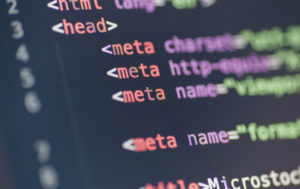
This story was originally published on Sept. 8, 2009, and is brought to you today as part of our Best of ECT News series.
Like Alice’s Restaurant in the Arlo Guthrie song, the Internet lets you get anything you want — from views on politics or science and technology or religion to recipes and gossip. Oh, and of course, news.
However, few people do more than skim the surface — and as they do with newspapers, most people tend to read only what interests them. Add to that the democratization of the power to publish, where anyone with access to the Web can put up a blog on any topic whatsoever, and you have a veritable Tower of Babel.
So, does the Internet make for shallowness of thought? If so, why?
Just a Channel
The Internet is a worldwide distribution channel, and it’s based on speed and reach. Nothing shows its value more than when it’s used to disseminate information in times of trouble, such as when Iranians put videos of post-election riots on the Web.
At the same time, nothing shows up its capability to give the most mean-spirited the ability to put forth their views as white-power blogs, for example — or the case of Lori Drew, an adult woman living in Dardenne Prairie, Mo., whose cyberbullying of 13-year-old neighbor Megan Meier led the teenager to hang herself. Drew, by the way, was charged with misdemeanors — accessing computers without authorization — and convicted, only to have the convictions thrown out by a federal judge.
So, the Internet is a mixed blessing, and that raises the next point: Should we censor the Internet so that only wholesome material is put out there? If we do, who should be the censors, and who will watch them?
Plato, never a fan of democracy, advocated philosopher kings and control of the arts to shape the minds of children in the way the state preferred. To paraphrase his point of view, the public had, in essence, the thinking ability of comatose gnats and needed the guidance of properly trained people. That view, of course, prompts another question: Who shall decide what training is proper?
It’s All in Your Head
Let us assume, for the moment, that we have no right to shut off the myriad of voices erupting onto the Internet, as that would mean restricting freedom of speech. What is it, then, that leads people to read shallowly, when they have so much information at their fingertips?
One possible explanation is our reading habits. As previously noted, people will read what interests them most, and there’s little anyone can do to change that.
Information overload is another factor. We have to limit how much information we take in so that we won’t get overwhelmed. The Web serves up so much information that it leaves readers little time for anything else, and often people tend to scan lots of Web sites or subscribe to several RSS feeds to assuage their hunger for news that interests them. Think of it as the reader’s equivalent to a junk-food addiction.
That addiction, and the plethora of information available on any one topic, leaves little time for anything else. “Somebody who reads only newspapers and, at best, books of contemporary authors, looks to me like an extremely near-sighted person who scorns eyeglasses,” Albert Einstein wrote in a note on classic literature for the Jungkaufmann, a monthly publication, in 1952. “He is completely dependent on the prejudices and fashions of his times, since he never gets to see or hear anything else.”
That tendency is strengthened by the demands of advanced industrial societies. In such societies, the productive apparatus tends to become totalitarian to the extent to which it determines both socially needed occupations, skills and attitudes, and also individual needs and aspirations, Herbert Marcuse said in his book, One-Dimensional Man.
Critical Thinking
“Mass production and mass distribution claim the entire individual, and industrial psychology has long since ceased to be confined to the factory,” Marcuse says. People’s outlooks tend to be shaped by their society and they want to fit in, to belong. Could that be why no one has questioned IBM’s and Intel’s projects to harness unused computing power in the public’s computers for public projects?
Last year, IBM launched the World Community Grid, which taps the computing power of the public. Last month, Intel unveiled a software program that lets Facebook users devote their spare computer processing power to research diseases or climate change.
Who benefits from these projects? Well, IBM and Intel get lots of free publicity. They possibly also get huge tax writeoffs. What do the members of the public, whose computers are being used and who pay for the electricity to power the computers get? Higher electric bills, probably, and a vague feeling of satisfaction.
Why didn’t anyone ask why the blue-chip companies that came up with the projects didn’t dedicate some of their own spare processing power for these worthwhile causes?
It could be because of the tyranny imposed by advanced industrial cultures that Marcuse speaks of. In advanced industrial cultures, the productive apparatus and the goods and services it offers impose their own social system on the public, Marcuse contends. Entertainment, transportation and means of communication “carry with them prescribed attitudes and habits, certain intellectual and emotional reactions which bind the consumers more or less pleasantly to the producers and through the latter to the whole.”
Eventually, any concept that cannot be accounted for through empirical observation in terms of operations or behavior will be eradicated, Marcuse says. News is empirical observation of a sort, even though it may be misreported due to the observer’s prejudices and bias, so it takes precedence over uncomfortable modes of thought that may lead to digging deeper into a question or an issue.
So, can we change people’s reading habits so they can think critically about what they read on the Internet? Perhaps. Should we do so? Only if we consider ourselves appointed the guardians of the public weal. The technical term for that is “hubris.”
TechNewsWorld writer Richard Adhikari loves technology but is concerned about its effect on society as a whole. His gods include Blish, Tiptree and Heinlein.






















































I know more than a few people that never touch a computer. You know what they do with their time? They read books written by people that believe the same conspiracies they do, they hand pick magazine that look like they have articles on the stupid stuff they believe, etc. They are like me when I didn’t even "skim" news papers (mostly because I didn’t give a frak whose horse got out of a corral that week, or other dumb BS), and just read the comics. The problem is, people are not **taught** to think critically *every*. They are certainly not taught to do so in church, they are not taught to do it in classes like English, which is just memorizing rules and words, they barely learn it in things like Mathematics, and then only as it applies to solving math problems, more than 90% don’t take science. In my highschool, and this was 10+ years ago, it was "college prep". If you where not planning on college, you didn’t need to take it, and the closest thing to science "prior" to that was in grade 1. And, guess what?! Even before Bush’s stupid, "All Children Left Behind", program, funding for, equipment for, and time for, sciences where either a) being lost, b) being determined *unsafe for kids*, and c) being cut back. Now… Now you are expected to cram as much worthless "information" into the kids head as possible, so they can pass the tests needed to keep the school funded, and what ever time might have still been spent on teaching the why and how of science has been buried under more memorization.
So.. Where is anyone, unless they are naturally contrary and learn it on their own, supposed to get taught how to evaluate the validity of information, question their own positions on subjects, or critically examine other people’s claims? Well, the answer for people realizing this happens is, "Not any place in the public I know". For the clueless who are stupid, but don’t know why, well.. they don’t know they are clueless either, so rush to the nearest thing that makes them feel good. And, the worst thing is, there are groups actively involved in undermining what little both public and private schools "do" manage to teach about evaluating information, because a) having your political motivations questioned kind of makes it hard to build large groups of people obsessed about the validity of your political position and b) some faiths/sub-faiths find a disturbing tendency for people that "can" think to run away from them like sheep from a pack of wolves, and you can’t grow a flock if the sheep can tell the difference between wolves and shepherds.
In short. The internet didn’t create this problem. The internet just gave it a more convenient place to live, and tools to shut up, censor and ban people that dare to show up and say anything that doesn’t support the local despots "position" on a subject. Its allowed tin pot dictatorships to move out of people’s basements and rented meeting halls, where someone *could* walk in and yell, "You people are all idiots!", without them being able to pretend it wasn’t happening, and create a tin pot reality, where nothing they ever do is wrong, because the people telling them its all wrong **are** censored by the local club/dictator that runs things.
Plato would have probably been running one of them, or posting on one. And, he would have *still* failed to grasp the concept that the best way to progress towards a rational world is to let the idiots a) isolate themselves from the people living in the real one, and b) let them have every opportunity to prove how confused, clueless, or just plain nuts, they are. When you find one of these groups in the net, they exist not because they are popular, but because they are desperate, and that isn’t enough to sustain a movement, or they wouldn’t be trying to win converts with alternative realities on the internet.